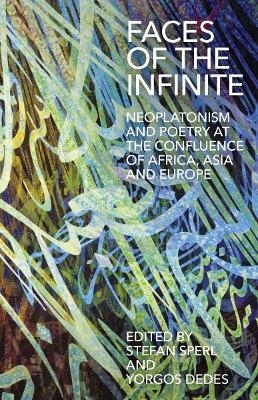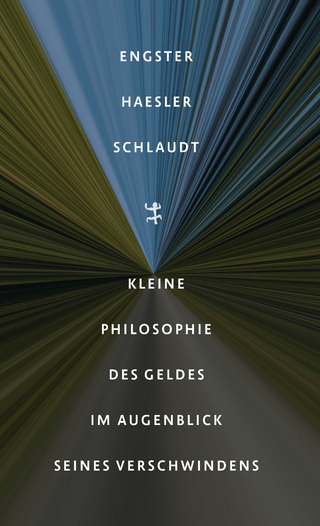
Faces of the Infinite
Oxford University Press (Verlag)
978-0-19-726725-7 (ISBN)
Neoplatonism, the dominant philosophy of Late Antiquity, inspired not only the intellectual traditions of Judaism, Christianity and Islam but also their arts. Neoplatonic notions of the ascent of the soul, the nature of love and beauty, divine immanence and transcendence, and the interplay between the many and the One, have for centuries left comparable marks on the poetry of Western Asia, North Africa and Europe. This volume focuses on the Greater Mediterranean and discusses authors who wrote in Arabic, Greek, Hebrew, Italian, Persian, Spanish and Turkish, from medieval times to the present day. Among them are many celebrated exponents of their respective classical traditions, including Dante, Ibn Arabi and Ibn Gabirol. Major contemporary poets writing in these languages have continued to engage with the Neoplatonic heritage assimilated by their forbears. Particular attention is therefore given also to the modern period.
The findings gathered here demonstrate that Neoplatonism is a cross-cultural phenomenon of outstanding importance which has given rise to a distinct 'Neoplatonic poetics' and remains relevant by pointing the way towards an inclusive sense of identity commensurate with a pluralist world.
Stefan Sperl, a graduate of Oxford (Arabic) and SOAS (PhD 1977), and former staff member of UNHCR (1978-88), is now Emeritus Professor of Arabic and Middle Eastern Studies at SOAS. His publications include articles on Arabic, Islamic and Refugee Studies, as well as Mannerism in Arabic Poetry: A Structural Analysis of Selected Texts (1989), Qasida Poetry in Islamic Africa and Asia (with Christopher Shackle, 1996) and The Cosmic Script: Sacred Geometry and the Science of Arabic Penmanship (with Ahmed Moustafa, 2014), which won the Iran Book of the Year Award (2016). His most recent publication is 'The Qur'an and Arabic Poetry' (The Oxford Handbook of Qur'anic Studies, 2020). Yorgos Dedes's teaching includes courses on Ottoman and Modern Turkish language, literature and culture. Since 2005 he has also been teaching at the Intensive Ottoman and Turkish Summer School in Cunda, Turkey. His research interests focus on Ottoman literature and Turkish culture with special reference to frontier epic traditions and relations with Byzantium and Greece. Another area of interest is the aljamiado literature of the Greek- speaking Muslims of the Ottoman empire. Recent publications include a book chapter on Bursa in Europe: A Literary History, edited by David Wallace (CUP 2015), an edition of the Greek aljamiado translation of Süleymân Çelebî’s Mevlid-i nebî (Journal of Turkish Studies, 2013) and an article on Ottoman poetry with Stefan Sperl (“‘In the rose-bower every leaf is a page of delicate meaning’: An Arabic perspective on three Ottoman kasides”, in Eski Edebiyat Çalismalari VIII, Istanbul 2013).
Notes on Contributors
Acknowledgements
STEFAN SPERL AND YORGOS DEDES: Introduction: 'A Thing All Living Faces'
PART 1. From Paganism and Eastern Christianity to the Islamic World (fourth to seventeenth centuries CE)
1: DAVID HERNÁNDEZ DE LA FUENTE: Neoplatonism and Poetics in Ancient Greek and Byzantine Literature
2: STEFAN SPERL: Stages of Ascent: Neoplatonic Affinities in Classical Arabic Poetry
3: ALEXANDER KEY: What are Neoplatonic Poetics? Allegory; figure; genre
4: KAZUYO MURATA: Beauty Stings: Plotinus and Ruzbihan Baqli on Beauty
5: WALTER G. ANDREWS: Ottoman Poetry: Where the Neoplatonic Dissolves into an Emotional Script for Life
6: DIDEM HAVLIOGLU: Mihrî Hatun and Neoplatonic Discourse: Legitimation of Women>'s Writing in Early Modern Ottoman Poetry
7: CARL W. ERNST: Poetry and Ishraqi Illuminationism among the Esoteric Zoroastrians of Mughal India
PART II. Jewish Neoplatonism and Hebrew Poetry in Muslim and Christian Realms (eleventh to seventeenth centuries CE)
8: ADENA TANENBAUM: Andalusian Hebrew Poems on the Soul and their Afterlife
9: JOACHIM YESHAYA: Karaite Poems about the Nature of the Soul from the Muslim East, Byzantium and Eastern Europe
PART III. Christian and Jewish Neoplatonism in Italy and Spain (fourteenth to seventeenth centuries CE)
10: CRISTINA D>'ANCONA: 'Nostro intelletto si profonda tanto': The Philosophical Background of Dante's Paradiso I, 1-12 and IV, 22-60
11: SUZANNE STERN-GILLET: Agathon Redivivus: Love and Incorporeal Beauty in Ficino>'s De Amore, Speech V
12: ABIGAIL BRUNDIN: 'REILLY: The Christian Neoplatonism of Francisco de Aldana in the Carta para Arias Montano
15: JULIAN WEISS: A Poetics of Difference: Neoplatonism and the Discourse of Desire in the Early Modern Spanish Love Lyric 339
PART IV. Neoplatonism in Modern Poetry: Splintered but Vibrant
16: PETER ROBINSON: An Equivocal Echo: Eugenio Montale
17: CLAUDIO RODRÍGUEZ FER: Eroticism of the Infinite: Neoplatonism, Kabbalism, and Sufism in the work of José Ángel Valente
18: ROBIN OSTLE: Body and Soul in the Arabic Literature of the Americas
19: FERIAL J. GHAZOUL: Neoplatonist Echoes in Modern Arabic Poetry: The Case of Mu?ammad ?Afifi Ma?ar
20: AHMAD KARIMI-HAKKAK: Shards of Infinitude: Neoplatonist Relics in Modern Persian Poetry
21: NESLIHAN DEMIRKOL and MEHMET KALPAKLI: The New Image of the Beloved in the Old Mirror: Reflections on the Neoplatonic Tradition in Modern Turkish Poetry
22: DAVID RICKS: Neoplatonists in Modern Greek poetry
Index
| Erscheinungsdatum | 07.01.2022 |
|---|---|
| Reihe/Serie | Proceedings of the British Academy |
| Verlagsort | Oxford |
| Sprache | englisch |
| Maße | 163 x 240 mm |
| Gewicht | 874 g |
| Themenwelt | Geisteswissenschaften ► Philosophie ► Metaphysik / Ontologie |
| Geisteswissenschaften ► Sprach- / Literaturwissenschaft ► Anglistik / Amerikanistik | |
| Geisteswissenschaften ► Sprach- / Literaturwissenschaft ► Literaturwissenschaft | |
| ISBN-10 | 0-19-726725-4 / 0197267254 |
| ISBN-13 | 978-0-19-726725-7 / 9780197267257 |
| Zustand | Neuware |
| Haben Sie eine Frage zum Produkt? |
aus dem Bereich


